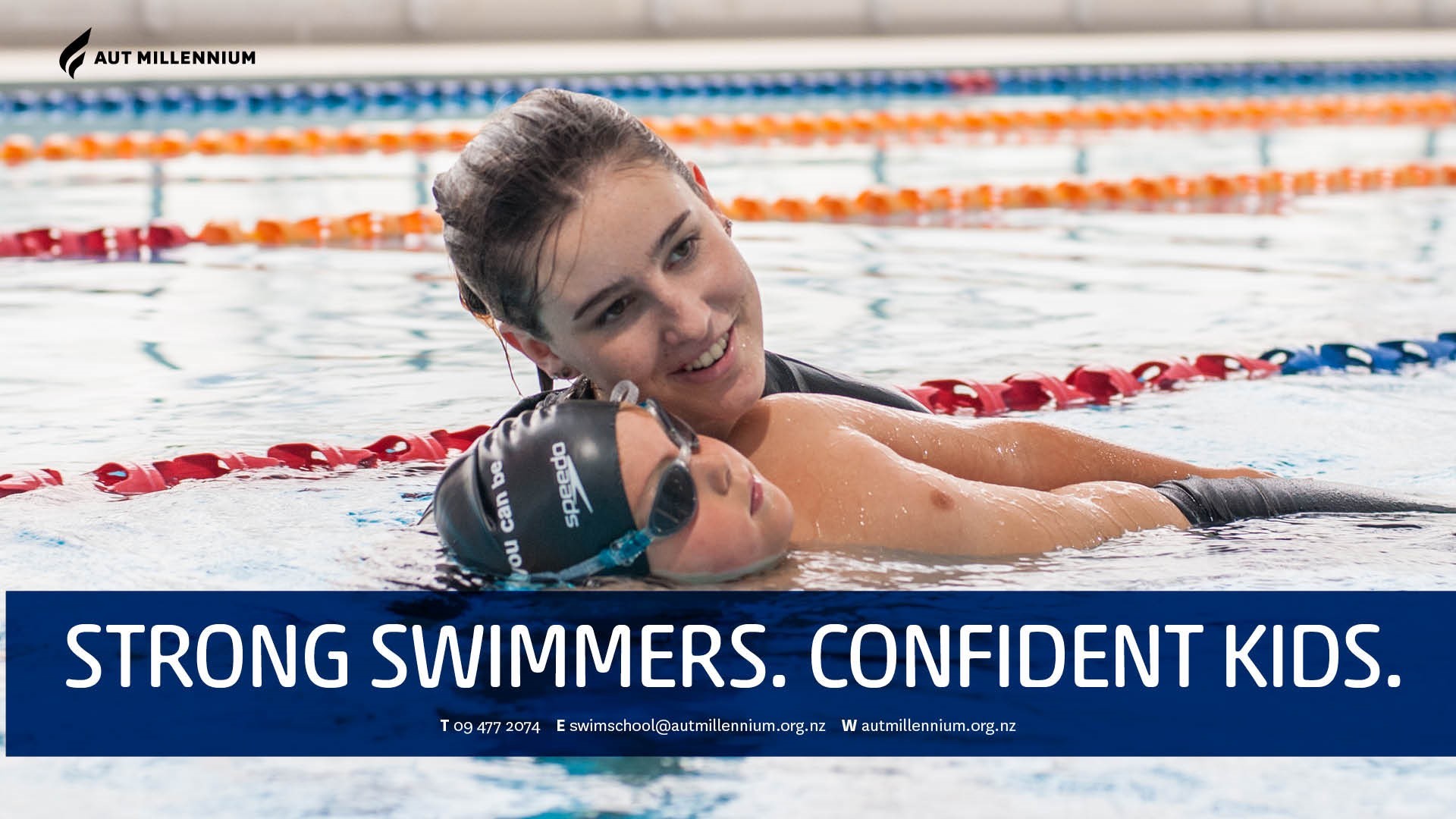The benefits of learning to swim
Swimming, it’s a skill for life.
As New Zealanders, we are spoilt for choice with our aquatic landscape. From sandy beaches and solid surf breaks to public pools and lakes, we are a nation never far from the water’s edge.
Swimming is not just a life-skill, it is an activity which encourages young and old alike to grow confidence and push personal boundaries.
Whether it is a toddler submerging for the first time or a child swimming their first lap, swimming can dramatically enhance confidence both in and out of the water.
That’s why AUT Millennium Swim School is passionate about teaching children to swim.
Though the list could go on, here are a few specific benefits of swimming for children;
- Increased cognitive function for developing children
- Children learn to accept and respond to feedback
- Effective measure for discipline and goal-setting
- Reduce the likelihood of drowning
Increased cognitive function.
For young children especially, swimming has undeniable benefits. The skills acquired from swimming are evidently physical, but the mental benefits from swim lessons are also widely documented.
Increased cognitive function in young children has proved beneficial in the classroom. Parents want to watch their children grow and excel, swimming is certainly a way to encourage mental and physical excellence. An extensive study by Griffith University in Australian has affirmed the academic advances in swimming children, which includes mastering areas such as reading, writing and counting faster than their non-swimming counterparts.
Responding to feedback.
While children who swim tend to excel in the classroom, they also learn to take and respond to feedback. Young swimmers adapt to new information and progress through more advanced levels as their skills develop. Accepting and responding to feedback is an invaluable life skill, in and out of the water.
Discipline.
The commitment and effort taken to master swimming skills help to discipline both young and developing children.
Children who commit to swimming a number of times a week are rewarded by progress such as more lengths, new strokes and faster times. Swimming is great for tracking results. Time, distance or even technique are effective measures for evaluating success.
There are numerous studies that attest to the mental and physical benefits of swimming, but the potential for establishing a foundation of confidence is surely enough reason to start regular lessons.
Reduce likelihood of drowning.
Learning to swim is a skill-for-life. A competent swimmer is better able to get out of trouble; whether it’s a fall from a boat, a quick rip or river jump. Not only is a competent swimmer less likely to drown, but they are able to enjoy the water with more confidence that a non-swimming counterpart. AUT Millennium Water Safety and Water Wise training programmes are designed to teach children how to be safe and smart when enjoying the water.






































